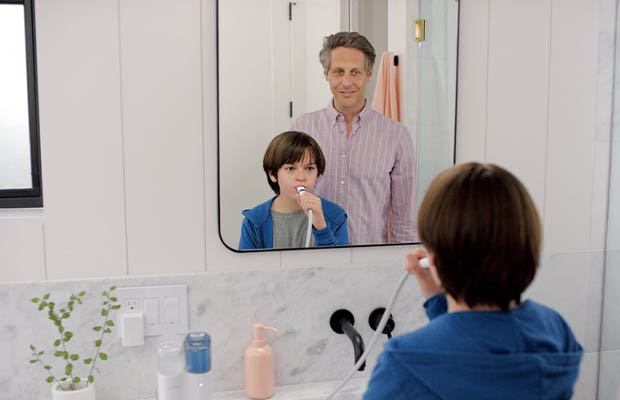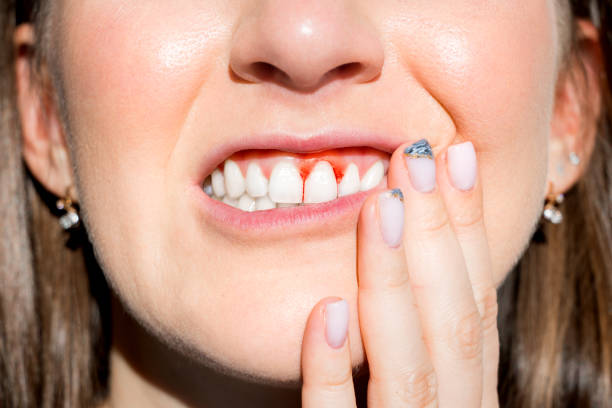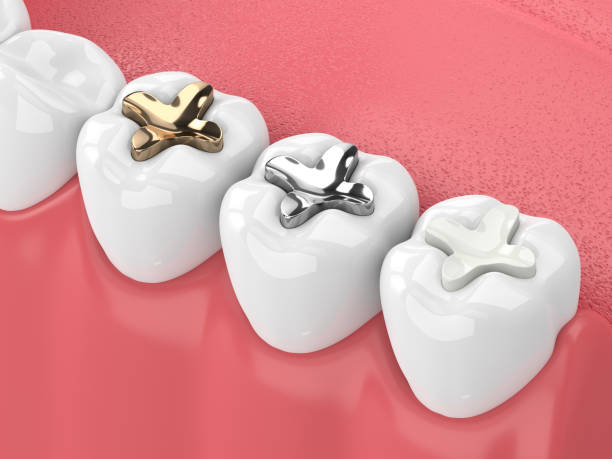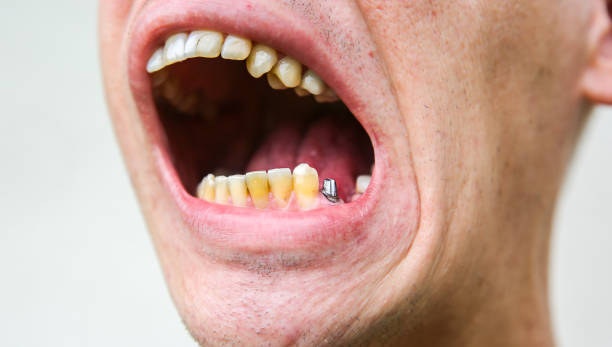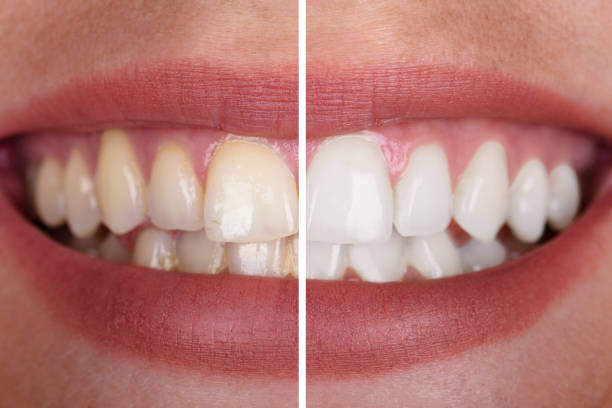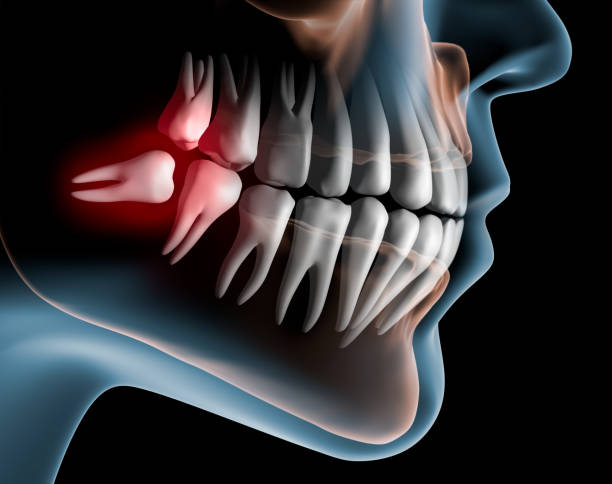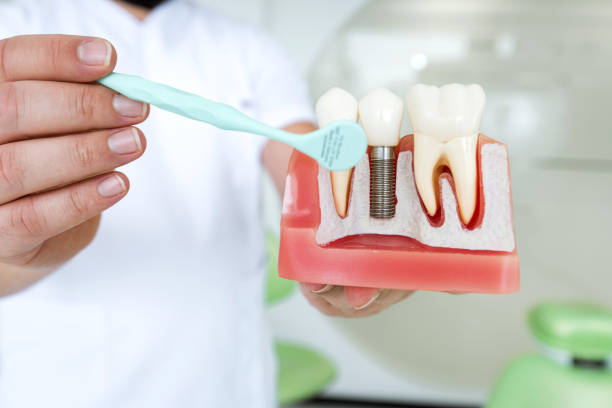Dental care and oral health have expanded astronomically over the last few years. What are the best options for tooth replacement? With the help of your dental professional consultant, you have access to a variety of tooth replacement options today. There is something available for every age group and financial range.
The loss of one or more teeth can affect your ability to speak and eat as well as make you feel self-conscious. Fortunately, several replacement tooth options exist.
Table of Contents
1. Dental Implant
A dental implant integrates with your natural bone, making it an ideal tooth replacement option for many people. During the procedure, our dentist replaces a natural tooth root with an implant that is placed into your jawbone. The implant will ultimately support a dental bridge, crown, or denture as a replacement.
Titanium, a biocompatible material used in numerous types of prosthetics, including artificial joints, is used to make implants. A prosthetic tooth is attached to the implant after it has been firmly implanted and allowed to heal completely. If you have lost one or more teeth because of periodontal disease, an accident, or other dental health problems, implants may be your best option.
Benefits of Dental Implants
Some benefits of implants include:
- They have a 95% treatment success rate.
- They last forever and are strong.
- Compared to other options, they feel more cozy and organic.
- They offer a lovely aesthetic.
- Aside from professional cleanings, dental exams, and good oral hygiene, they only need minimal maintenance.
- To stop jawbone deterioration, they are the best tooth replacement option.
- They have a long lifespan, making them the most economical in the long run.
- The surrounding teeth don’t need to be altered in any way.
- They can be done in one day, in some cases, through an immediate implant placement procedure.
Considerations for Dental Implants
Important points a patient should be aware of before having implants include:
- The implantation of dental implants is a minor surgical procedure that needs a complete medical history.
- 24 to 48 hours after surgery, you might need to reduce your activity level slightly. For the next two days, you should refrain from engaging in any strenuous physical activity, including going to the gym.
- A dental implant is not a replacement option on its own; rather, it serves as the supporting structure for an implant crown, implant bridge, or implant denture.
Dental implants are an expensive procedure, just like any other dental procedure to replace missing teeth. If the price of dental implants worries you, you can always talk to your dentist about a payment schedule or other financing options.
Best Candidates for Dental Implants
Depending on the condition of your bones, you might be able to have your dental implants put in the same day as your tooth extraction. This procedure is known as immediate implant placement. A dentist will determine whether implants are a good option for replacing missing teeth during your initial consultation and whether you are a good candidate for immediate implant placement.
You will need delayed implant placement if you are not a candidate for same-day implants. Either a bone infection that needs to heal or bone loss that your implant dentist must restore using a bone graft are the causes of the delay. Usually, it takes two months for the body to heal.
2. Implant Crown And Bridges
In the past, the only options for replacing missing back teeth were dental bridges or removable dentures. You have lots of choices right now. A few good alternatives to the standard restorations are:
- Implant bridge
- Implant crown
- Implant-supported denture
Both implant bridges and implant crowns are implant-supported restorations. They are used by the dentist to restore extracted or missing teeth. The best option to replace one missing tooth in the front or back is an implant crown.
An excellent option to replace a gap created by three to twelve missing teeth is an implant-supported bridge. The number of missing teeth affects both the number of implants and the length of the implant-supported bridge. In the absence of teeth, the dentist can reconstruct your entire mouth using dental implant bridges or implant-supported dentures.
Benefits of Implant Crowns And Bridges
The advantages of implant bridges and crowns include:
- A new bridge to replace your missing tooth won’t require the dentist to grind down any of your healthy teeth.
- You can eat with confidence because they perform similarly to natural teeth.
- The effects they produce are beautiful.
- Speaking and grinning are simple because they appear and feel natural.
- You simply brush and floss them like you would a regular tooth to keep them clean.
- Before you need to replace them, they will last for a very long time.
Disadvantages of Implant Crowns And Bridges
The quantity of dental appointments needed is the main disadvantage of implant crowns and bridges. The number of dental visits necessary to replace your missing tooth or teeth with an implant crown or bridge will depend on your oral health and the specific course of treatment you decide on. The entire course of treatment is anticipated to last three to six months.
Best Candidates for Implant Crowns
The best candidates for implant crowns:
- are seeking strong, non-removable teeth that are stable.
- have one to several missing teeth.
- are seeking a pleasing appearance, excellent performance, better speech, and increased confidence.
3. Implant-supported Dentures
Overdentures that are affixed to and supported by implants are known as implant-supported dentures. Implant dentures attach to implants rather than your gums, which is why they offer better support than regular dentures. Implant-supported dentures have many names:
- Implant dentures
- Implant-supported dentures
- Denture implants
- Full denture implants
- Snap-in dentures
But they all mean the same thing—your implants offer total denture support.
Implant denture installation requires two phases, just like other implant-supported restorations do. In order to hold the dentures in place, at least two dental implants must first be surgically placed in your jaw by an implant specialist. Afterward, a dentist who fits prosthetics will fit your new custom prosthesis.
Types of Implant Dentures
Two types of implant dentures are available:
- Removable dentures supported by abutments and implants.
- Hybrid fixed dentures also referred to as implant and abutment supported fixed dentures, are one option.
Implant-supported Removable Denture
Similar to traditional dentures, implant-supported removable dentures must be taken out before bed. Daily cleaning of your dentures and gums is also necessary.
Two types are available:
- Ball-retained
- Bar-retained
Regardless of the situation, our dentist will make your denture from an acrylic base that mimics your gums. After that, the dentist adheres to acrylic or porcelain teeth that look natural to the base. Both of these will require at least two implants to provide support.
Other types of implant-supported removable dentures include:
- All-on-four, meaning that four dental implants support your full denture
- All-on-eight dentures
Implant-supported Fixed Denture
Fixed implant dentures, as opposed to removable implant dentures, are affixed to the implants permanently and can be kept in the mouth at all times. To ensure the longevity of the implants, maintaining oral health is still essential. With implant-supported fixed dentures, patients can achieve the best oral hygiene by using a water flosser and floss made specifically for this purpose.
Some names for implant-supported fixed dentures include:
- Permanent dentures
- Fixed dentures
- Hybrid dentures
4. Partial Dentures
An embarrassment can result from missing teeth. With a removable partial denture, you can replace your missing teeth quickly while keeping your remaining teeth. Based on a mold of your mouth, the denture is made to order. It is made of pink acrylic or nylon, which supports and stabilizes the denture and resembles your gums.
The teeth fit in your mouth’s space created by the missing teeth and attach to the base. Clasps may be necessary to secure a partial denture. The clasps might be noticeable when you smile or speak, depending on the type of denture or the placement of the missing teeth.
Benefits of A Partial Denture
Some benefits of partial dentures include:
- Compared to implants or fixed bridges, they are less expensive.
- Since they close the spaces between your teeth, they help you regain your smile.
- It takes only a short time and doesn’t involve any physical contact.
- Partial dentures might enhance your ability to eat and speak, depending on the position of the missing teeth and the quantity of healthy bone.
- Depending on the kind of denture you choose, the dentist might be able to add more teeth. Before agreeing to the procedure, please have this discussed with your dentist. An adjustable partial denture, for instance, cannot be given teeth.
Disadvantages of A Partial Denture
Some of the disadvantages include:
- In some cases, they do not perform as well or appear as natural as fixed options.
- For a comfortable fit, the dentist might have to make several adjustments.
- They might be a bit intrusive.
- To ensure a better fit, it might be necessary to use adhesive creams.
- They require more frequent replacement or relining.
- You must take them out every day to clean them, and you must leave them outside at night so your gums can heal.
- Losing or misplacing a partial denture is simple.
- If dropped, they could break.
- Due to a covered palate, your sense of taste may be slightly diminished.
5. Complete Dentures
Complete dentures, also known as full upper or full lower dentures, replace the entire missing arch of teeth, in contrast to partial dentures which only replace a few missing teeth.
Benefits of Complete Dentures
Some advantages of complete dentures include:
- They significantly improve your appearance and may increase your self-confidence because they replace missing and decayed teeth.
- They restore facial dimensions, support the lip and cheek muscles adequately, and give the face a youthful appearance.
- Complete dentures may help you eat more comfortably and speak more clearly, similar to partial dentures, depending on the strength and volume of your bone.
- They are a reasonably quick and inexpensive treatment choice.
- They can closely resemble your natural gums, look natural, and come in a variety of colors, shapes, and sizes.
- For the sake of accommodating the shifting contours of your jawbone, the dentist can easily adjust or reline them.
Disadvantages of Complete Dentures
Some disadvantages of complete dentures include:
- Due to a change in the shape of your jawbone, they might start to feel uncomfortable.
- You must take them out to clean them, and you must leave them out overnight to allow your gums to heal.
- For them to be comfortable, many times several adjustments are needed.
- If you want to keep them in your mouth, you might need adhesives.
- If dropped, they could break.
Best Candidates for Complete Dentures
If you need to replace an entire arch of teeth, complete dentures are an affordable option. They are appropriate if you do not want implant surgery or if you are not a good candidate for implants.
6. Do Nothing
When tooth loss is hidden from view in the back of the mouth or when smiling, some people decide not to do anything. Another reason someone might put off getting treatment is the cost of replacing missing teeth. However, failing to replace missing teeth can lead to dental issues in the future.
Causes of Missing Teeth
There are a few main causes of tooth loss, including severe cavities, gum disease, and dental injuries like severely cracked, broken, or knocked-out teeth that couldn’t be repaired. Your susceptibility to problems like cavities and gum disease can be increased by a number of risk factors, including diabetes, autoimmune diseases, smoking, poor nutrition, and more. Fortunately, whether you have risk factors or not, it’s usually very simple to avoid these reasons for tooth loss! The majority of oral health problems can be avoided by adhering to a regular oral hygiene routine, seeing your dentist twice a year, playing contact sports while wearing a mouthguard, and making lifestyle changes to help reduce any potential increased risk.
Benefits of Replacing Missing Teeth
We often take for granted the multitude of functions that our teeth perform, so having a missing tooth replaced can actually have a surprisingly positive effect, restoring and safeguarding your oral health for years to come! One or more missing teeth can be replaced to help with eating and speaking as well as to boost self-confidence, both of which are vital for day-to-day functioning. But the advantages extend far beyond that!
In addition, tooth replacement procedures can stop your teeth from moving into the gap in your smile, protecting both its appearance and the way your teeth fit together. This can also help prevent temporomandibular joint problems that could result from a shifting bite. Keeping your teeth from moving also makes it easier to clean your teeth thoroughly, helping you to prevent future cavities and gum disease. Replacing missing teeth may even safeguard the long-term health of your jaw bone depending on the procedure you select. Therefore, replacing a missing tooth helps to preserve your long-term oral health by restoring and maintaining the tooth’s appearance and functionality.


